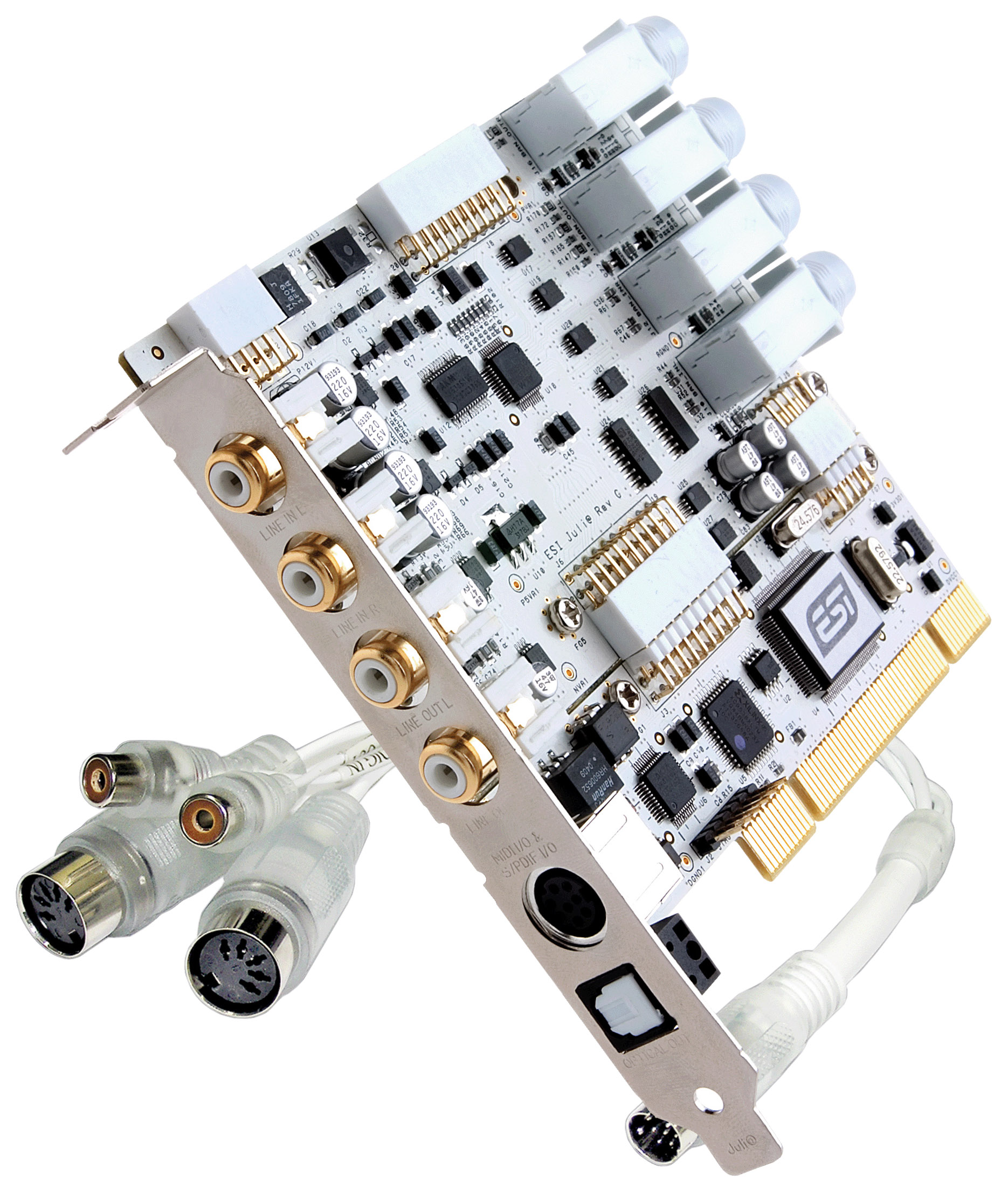No professional card is equipped with RCA connectors but rather the digital lines or symmetrical I/O! So that m-audio audiophile is not a professional card 😉 None of those m-audio cards are professional cards 2496/delta1010/delta1010LT has no symmetrical I/O after I checked all of those.
well, compared to Apogee cards that m-audio is not as good as those pricey studio equipment cards, but it is somewhat good enough or "better than soundblaster" in a way.
despite some of its flaws (the internal mixer phase delay, break out connector cable is non-symmetric).
gryffinwings wrote:I was thinking about getting an additional sound card for my retro rig in addition to the Sound Blaster Audigy 2 ZS. Thoughts on the M-Audio Audiophile 24/96? Or maybe something else. Just curious to know if anyone has done this.
For which applications,
and on which platform,
and which hardware?
for retro that audigy cards arent so much useful as they lack drivers for more retro platforms and have not working emulations.
1. my retro machine: pentium IV with 1GB RAM and win98se / dos programs.
for studio recording with madtracker 2.6.1 (machine is pentium IV) there is a M-audio delta1010LT and Soundblaster live 1024.
Soundblaster live with its SB16 emulation is half-useful (the MIDI MPU does not work under DOS).
M-audio 24/96 worked together with SB live 1024 together too. HOwever having the all 3 cards (M-audio audiophile 2496, delta1010LT, soundblaster 1024) did not worked well - the audio crackling began.
I choosed the m-audio in the past becouse for the same features it had the drivers for older platforms too, drivers were working ones with these programs (win98, while the other similar ASIO cards required the atleast latest M$ platform).
Now it was also possible to modify for a upgrade to take signals out for external converters from these cards.
THe other machines with the experiments with several cards in one machines with ISA bus:
2. machine: 486 DX-4 100Mhz had 3 soundcards on some days and worked fine:
ESS Audiodrive
Gravis Ultrasound ACE
Roland RAP10
3. the another combination was with AMD K6 300MHz
Gravis Ultrasound MAX
Roland RAP10
Soundblaster awe64 worked together with Roland RAP-10, but did not fit together with Gravis Ultrasound Interwave or MAX, but fitted with Gravis Ultrasound ACE
Also I have also soon the another ISA card experiment ready and then some recording systems will move back from Pentium to 486 machine or so 😀 I hope all the features for some serious recording studio will be working (24bit/96kHz, wordclock, SPDIF/AES/EBU, timecode). Also it will be switchable for SB16 compatibility and in hardware mp3/ogg player. The other ones who want can develop the OPL board for it right now.
Current project: DOS ISA soundcard with 24bit/96Khz digital I/O, SB16 compatible switchable.
newly made SB-clone ...with 24bit and AES/EBU... join in development!
